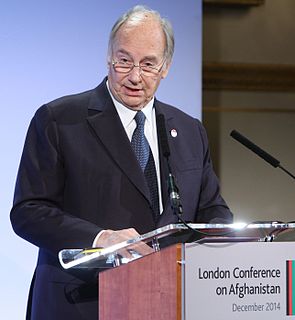A Quote by Pankaj Mishra
I think subsuming political and economic conflicts into some grand 'clash of civilisations' theory or 'the West versus the rest' binary is a particularly insidious form of ideological deception.
Related Quotes
The Muslim world, with its history and cultures, and indeed its different interpretations of Islam, is still little known in the West. The two worlds, Muslim and non-Muslim, Eastern and Western, must, as a matter of urgency, make a real effort to get to know one another, for I fear that what we have is not a clash of civilisations, but a clash of ignorance on both sides.
We need a new political language with broader narratives. Such a language has to unravel the pervasive ideological, pedagogical, and economic dynamics of a form of economic Darwinism that now governs much of the world. This system must be demystified, politicized, and recognized for the ways in which it has come to pose a dire threat to democracy.
The American president increasingly used his influence to create conflicts, intensify existing conflicts, and, above all, to keep conflicts from being resolved peacefully. For years this man looked for a dispute anywhere in the world, but preferably in Europe, that he could use to create political entanglements with American economic obligations to one of the contending sides, which would then steadily involve America in the conflict and thus divert attention from his own confused domestic economic policies.
Independent of the critique I'm making, I'm just trying to paint a more comprehensive portrait of American religion than you get from a right versus left, religious conservatives versus secular liberal, believer versus atheist, binary. Too often, we just look at religion in America through that kind of either/or lens. I think it's much more complicated than that.
The ideological are individuals ultimately swamped by the complexities of modern life and political and economic relations; they have deliberately attached themselves to some caricatural maven like Falwell or Limbaugh who speaks to their manipulable pathos. The gulf between such individuals' education or intellectual competence or information and the actual issues of our times is simply too great. They were bred to be culture-media for false consciousness, junkies who crawl on their bellies across broken glass for another hit of "clarifying wisdom" from some ideological Pope.






































